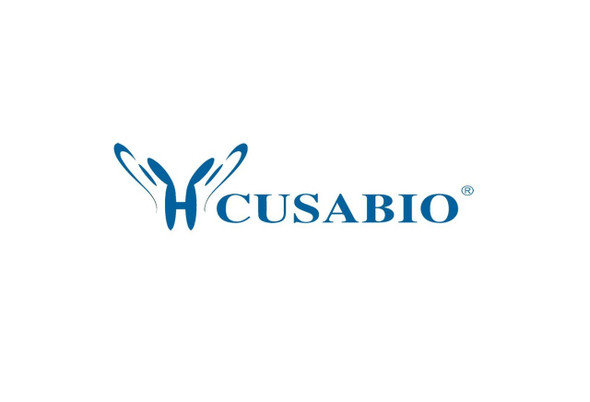Cusabio Human Recombinants
Recombinant Human DnaJ homolog subfamily B member 1 (DNAJB1) | CSB-RP039344h
- SKU:
- CSB-RP039344h
- Availability:
- 13 - 23 Working Days
Description
Recombinant Human DnaJ homolog subfamily B member 1 (DNAJB1) | CSB-RP039344h | Cusabio
Alternative Name(s): DnaJ protein homolog 1Heat shock 40KDA protein 1 ;HSP40 ;Heat shock protein 40Human DnaJ protein 1 ;hDj-1
Gene Names: DNAJB1
Research Areas: Neuroscience
Organism: Homo sapiens (Human)
AA Sequence: MGKDYYQTLGLARGASDEEIKRAYRRQALRYHPDKNKEPGAEEKFKEIAEAYDVLSDPRKREIFDRYGEEGLKGSGPSGGSGGGANGTSFSYTFHGDPHAMFAEFFGGRNPFDTFFGQRNGEEGMDIDDPFSGFPMGMGGFTNVNFGRSRSAQEPARKKQDPPVTHDLRVSLEEIYSGCTKKMKISHKRLNPDGKSIRNEDKILTIEVKKGWKEGTKITFPKEGDQTSNNIPADIVFVLKDKPHNIFKRDGSDVIYPARISLREALCGCTVNVPTLDGRTIPVVFKDVIRPGMRRKVPGEGLPLPKTPEKRGDLIIEFEVIFPERIPQTSRTVLEQVLPI
Source: E.coli
Tag Info: N-terminal GST-tagged
Expression Region: 1-340aa
Sequence Info: Full Length
MW: 65 kDa
Purity: Greater than 90% as determined by SDS-PAGE.
Relevance: Interacts with HSP70 and can stimulate its ATPase activity. Stimulates the association between HSC70 and HIP.
Reference: The DNA sequence and biology of human chromosome 19.Grimwood J., Gordon L.A., Olsen A.S., Terry A., Schmutz J., Lamerdin J.E., Hellsten U., Goodstein D., Couronne O., Tran-Gyamfi M., Aerts A., Altherr M., Ashworth L., Bajorek E., Black S., Branscomb E., Caenepeel S., Carrano A.V. , Caoile C., Chan Y.M., Christensen M., Cleland C.A., Copeland A., Dalin E., Dehal P., Denys M., Detter J.C., Escobar J., Flowers D., Fotopulos D., Garcia C., Georgescu A.M., Glavina T., Gomez M., Gonzales E., Groza M., Hammon N., Hawkins T., Haydu L., Ho I., Huang W., Israni S., Jett J., Kadner K., Kimball H., Kobayashi A., Larionov V., Leem S.-H., Lopez F., Lou Y., Lowry S., Malfatti S., Martinez D., McCready P.M., Medina C., Morgan J., Nelson K., Nolan M., Ovcharenko I., Pitluck S., Pollard M., Popkie A.P., Predki P., Quan G., Ramirez L., Rash S., Retterer J., Rodriguez A., Rogers S., Salamov A., Salazar A., She X., Smith D., Slezak T., Solovyev V., Thayer N., Tice H., Tsai M., Ustaszewska A., Vo N., Wagner M., Wheeler J., Wu K., Xie G., Yang J., Dubchak I., Furey T.S., DeJong P., Dickson M., Gordon D., Eichler E.E., Pennacchio L.A., Richardson P., Stubbs L., Rokhsar D.S., Myers R.M., Rubin E.M., Lucas S.M.Nature 428:529-535(2004)
Storage: The shelf life is related to many factors, storage state, buffer ingredients, storage temperature and the stability of the protein itself. Generally, the shelf life of liquid form is 6 months at -20?/-80?. The shelf life of lyophilized form is 12 months at -20?/-80?.
Notes: Repeated freezing and thawing is not recommended. Store working aliquots at 4? for up to one week.
Function: Interacts with HSP70 and can stimulate its ATPase activity. Stimulates the association between HSC70 and HIP. Negatively regulates heat shock-induced HSF1 transcriptional activity during the attenuation and recovery phase period of the heat shock response
Involvement in disease:
Subcellular Location: Cytoplasm, Nucleus, Nucleus, nucleolus
Protein Families:
Tissue Specificity:
Paythway: Proteinprocessinginendoplasmicreticulum
Form: Liquid or Lyophilized powder
Buffer: If the delivery form is liquid, the default storage buffer is Tris/PBS-based buffer, 5%-50% glycerol. If the delivery form is lyophilized powder, the buffer before lyophilization is Tris/PBS-based buffer, 6% Trehalose, pH 8.0.
Reconstitution: We recommend that this vial be briefly centrifuged prior to opening to bring the contents to the bottom. Please reconstitute protein in deionized sterile water to a concentration of 0.1-1.0 mg/mL.We recommend to add 5-50% of glycerol (final concentration) and aliquot for long-term storage at -20?/-80?. Our default final concentration of glycerol is 50%. Customers could use it as reference.
Uniprot ID: P25685
HGNC Database Link: HGNC
UniGene Database Link: UniGene
KEGG Database Link: KEGG
STRING Database Link: STRING
OMIM Database Link: OMIM









